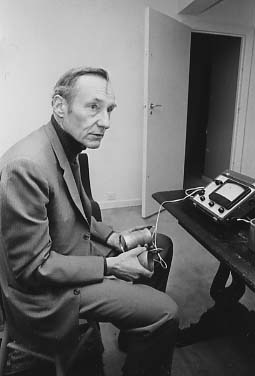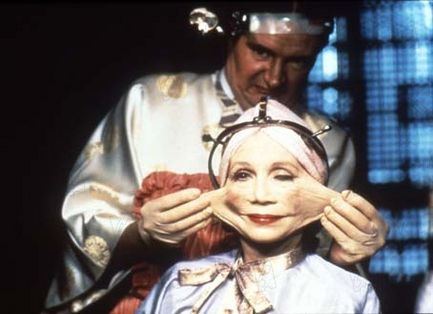Lawrence Wright, Going Clear writer, holds out hope that Scientology can reform itself, normalize, transition from cult to religion, but filmmaker Alex Gibney, who adapted the book into an HBO sensation, harbors no such faith. An exchange from one of Andrew O’Hehir’s customarily smart Salon interviews:
Question:
Larry speculates that it might be possible for the church to reform itself by doing what they did before on the issue of homophobia, and pretending that Hubbard’s bigoted and hateful remarks basically never existed. I think he’s being overly generous. I can’t imagine an organization that is this paranoid and this hateful finding a way to reinvent itself. Can you?
Alex Gibney:
No. Look at what’s happening now with Pope Francis and the Catholic Church. The weight of history is so strong, much stronger for the Catholic Church of course. But in the case of the Church of Scientology they would have to fundamentally uproot their belief system. Whether he was a bigot or just a creature of his age, Hubbard was virulently anti-gay and thought it was a disease that could be cured. How do you fix that unless you come out and say, “You know what? Hubbard was wrong about a lot of things.” And that’s hard to do. That’s what was so interesting about these individuals in our film: It was hard for them to wake up one day and say they had been wrong for 30 years.
I don’t know if you read this piece in the New Yorker recently, about the Jean McConville murder in Northern Ireland? It was a fascinating piece and one of the aspects that caught my eye was this one woman [Dolours Price] who was basically a hit woman for the IRA. She was very attractive, ended up marrying Stephen Rea. But when the Good Friday Accords happened, suddenly all the certainty she’d had that allowed her to believe that the end justified the means had been removed. And it sent her into a tailspin. Once that certainty is gone – I mean, it’s a wonderful kind of narcotic. I think that for Danny Masterson and Bodhi Elfman, it probably feels good to say, “Those are hateful bastards saying this stuff.” Because it’s pure; it may be hate but it’s pure hate, and it feels good because you’re certain. But when your certainty is removed, what’s left?•
_____________________________
“Yes, and Jane came by with a lock of your hair
She said that you gave it to her
That night that you planned to go clear
Did you ever go clear?”



